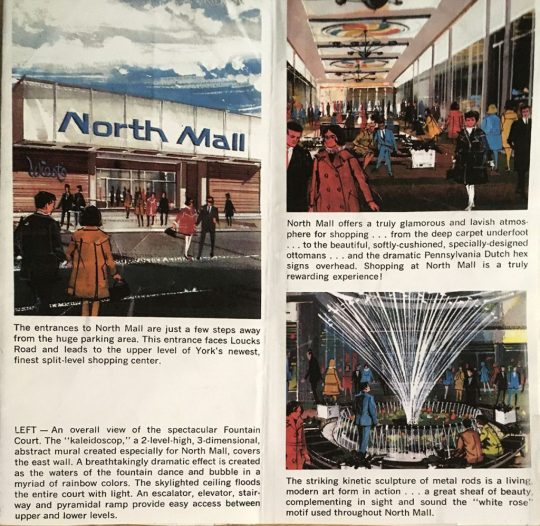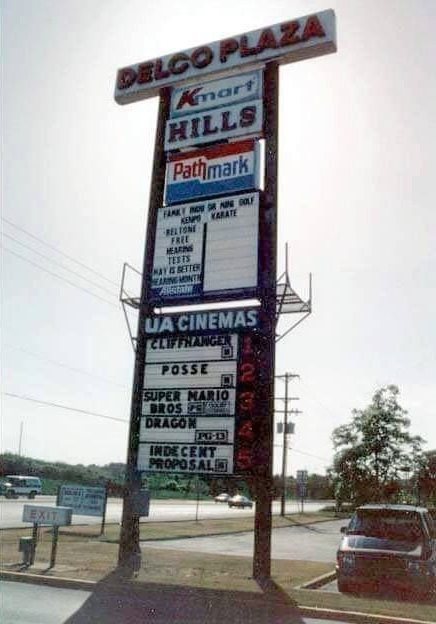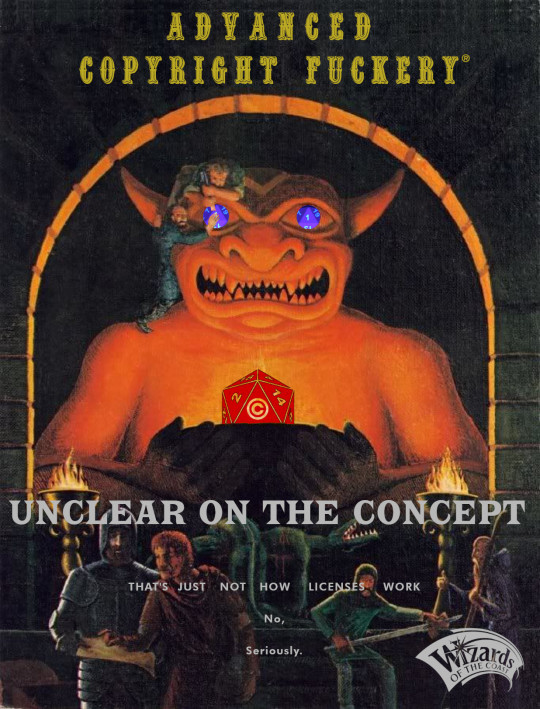#corporate car leasing
Text
Long Term Car Lease in Dubai
Explore Dubai seamlessly with Advanced Car Rental's Long Term Car Lease options. Our extensive fleet, competitive rates, and personalized service ensure a convenient and comfortable driving experience throughout your extended stay in the city. Contact us at +971 2 676 6445 or visit our website to lease a car today!
#Long Term Car Lease Dubai#corporate car leasing#Car leasing Dubai#leasing a car in dubai#commercial vehicle rental#weekly car rental#rent a car dubai#Monthly Car rental#uae car rental service#cheap rent a car abu dhabi#Affordable car rental in uae
1 note
·
View note
Text

Explore the advantages of Explore the advantages of corporate car leasing programs. programs. Enhance your business operations with cost-effective and flexible vehicle leasing options.
0 notes
Text

🚙 Discover the Power and Performance of the Sinotruk VGV U75 Plus! 🚙
Unleash your drive with the Sinotruk VGV U75 Plus – a perfect blend of strength, style, and cutting-edge features. Ready to take your adventures to the next level?
📞 Contact us now to reserve yours: +966 565755605 / 565957248
🌐 https://autorentsaudi.com/rent-cars
#rent a car#saudi arabia#car rental service#autorentsaudi#monthly car rental#car rental#monthly car rental ksa#car hire saudi#car leasing#car hire#vehicle rental#corporate car lease#business travel#explore saudi
0 notes
Text

Orix Corporate Car Lease | Fleet Solutions
Orix offers fleet solutions with corporate car leasing. Streamline your business transportation needs with our corporate lease services.
0 notes
Text
How Employers Can Boost Tax Benefits For Their Employees

One of the best ways for Australian organisations to attract and retain top talent is by offering them better tax benefits. While there’s no getting out of income tax deductions, you can make things easier for your employees through a smart and strategic salary sacrifice arrangement. This is when the employee agrees to give up a certain part of their future entitlement in exchange for benefits.
A recent survey revealed that 1 in 10 employed individuals dislike their jobs. It also highlighted that approximately half of the Australian workforce is satisfied with their jobs.
Salaray packaging can help change this. Here’s how this can help employers improve employee satisfaction and offer greater tax benefits.
How Does Salary Sacrifice Enhance Tax Benefits for Employees?
Many people are misled by the word “sacrifice” and think they’ll be giving up benefits. The truth is that salary sacrificing is a great way for employers to boost employee tax benefits through a three-way financial arrangement involving the two of them and the financier. Once the agreement is made, a pre-decided amount is deducted from the employee’s pre-tax salary. This is then transferred to their benefits instead. In other words, a pre-determined portion of an employee’s salary can be “sacrificed” to reduce their taxable income.
For instance, let’s suppose an employee’s annual pre-tax salary is $80,000. By entering a salary sacrifice arrangement, they agree to receive $60,000 as their income and the remaining $20,000 as benefits. Thus, their taxable income is reduced to $60,000 through salary packaging and they get to pay less for taxes.
Usually, tax is deducted from an employee’s salary before they’re paid. The after-tax amount they receive is what they can then use for their expenses. By opting for salary packaging, their annual salary remains the same. However, the arrangement reduces the total taxable salary. This means that even though they get paid the same salary amount they were paid before, their taxes are reduced, and they have a greater take-home amount because of the benefits they signed up for.
That said, every organisation and employer has their own salary packaging benefits. You can consult with professionals to determine how you wish to go about salary sacrificing for employees.
Who Benefits From Salary Sacrificing?
Salary packaging is ideal for full-time and part-time employees. It’s especially recommended for employees earning middle to high incomes. This is because they have more available funds and can easily cater to their non-essential or additional expenses. Individuals working as casual workers or contractors aren’t eligible for this financial arrangement.

Employers also benefit from salary packaging. It’s a great recruitment strategy and can be used to attract and retain top talent. Individuals are more likely to accept job offers at your organisations and stay with your company if they’re granted tax benefits like the ones offered by salary sacrificing.
What Can Be Included In a Salary Sacrifice Arrangement?
As mentioned above, employers can decide the type of benefits they wish to offer employees in a salary packaging arrangement. There aren’t any particular restrictions to what may or may not be included in a salary sacrifice package. Australian employers have actively been reinventing workplace flexibility and offering various types of benefits, and this is evident in the salary sacrifice agreements they provide.
There are usually three categories that you can turn to when determining employee tax incentives to replace taxable income. The types of benefits generally provided in salary sacrifice arrangements by employers include:
Fringe benefits
Exempt benefits
Superannuation
Fringe Benefits
Fringe benefits are payments made to employees in the form of memberships, vehicles, loan repayments, childcare and/or school costs, properties, and recreational or entertainment benefits. For instance, you may provide your employees with a company-maintained car or help them own one through a novated lease. You could also take care of their reimbursements, offer them gym memberships, or provide real estate benefits.
Employers are required to pay fringe benefits tax (FBT) for the benefits mentioned above.
FBT Exempt Benefits
You could also opt for FBT exempt benefits. These include specific benefits employers don’t have to pay fringe benefits tax for, making them all the more appealing to organisations. Items commonly included in these benefits include work-related portable devices (phones, laptops, pagers, etc.), computer software, tools of the trade, and protective clothing.
Employers don’t have to pay FBT on these items if they’re primarily used for work purposes by employees.

Superannuation
There’s a third way for you to boost your employees’ tax benefits: by contributing to their super funds. Super contributions benefit organisations as well as their employees. These benefits are FBT exempt, reducing the tax employers need to pay. Moreover, super funds contributions have 15% tax payment contributions, making it a feasible option.
This is a good option for employees to build their retirement savings as the pre-decided amount deducted from their pre-salary tax goes straight into their superannuation accounts. Alternately, the contributions can be used to make big purchases, such as buying a house or a property. Since the contributions are categorised as employer super contributions, they needn’t worry about tax deductions.
Boosting Tax Benefits Through Novated Car Leasing
One of the best ways for companies to tap into salary sacrificing for employees is by offering novated car leasing. This financial arrangement is a popular form of salary packaging and allows salaried individuals to lease their desired cars as part of their salary packages. By offering a novated car lease to your employees, you can encourage them to invest in their preferred vehicles while taking care of the lease and running costs.

Research has shown that offering benefits like novated car leases can contribute to an organisation’s long-term company growth. It keeps existing employees happy and encourages external candidates to apply, enhancing your company’s reputation. It also helps employees enjoy greater tax benefits by reducing their taxable income in the process.
Work With Novated Leasing Experts in Australia
The team at Apex Novated Solutions helps organisations in Australia offer salary sacrifice car schemes to employees. The novated car leasing company partners with several financiers in the country to help salaried individuals lease their preferred vehicles, making the novated car leasing process hassle-free and efficient for employers and employees alike.
Get in touch with their team today to learn more about their customised corporate novated leases.
0 notes
Text
Your car spies on you and rats you out to insurance companies

I'm on tour with my new, nationally bestselling novel The Bezzle! Catch me TOMORROW (Mar 13) in SAN FRANCISCO with ROBIN SLOAN, then Toronto, NYC, Anaheim, and more!

Another characteristically brilliant Kashmir Hill story for The New York Times reveals another characteristically terrible fact about modern life: your car secretly records fine-grained telemetry about your driving and sells it to data-brokers, who sell it to insurers, who use it as a pretext to gouge you on premiums:
https://www.nytimes.com/2024/03/11/technology/carmakers-driver-tracking-insurance.html
Almost every car manufacturer does this: Hyundai, Nissan, Ford, Chrysler, etc etc:
https://www.repairerdrivennews.com/2020/09/09/ford-state-farm-ford-metromile-honda-verisk-among-insurer-oem-telematics-connections/
This is true whether you own or lease the car, and it's separate from the "black box" your insurer might have offered to you in exchange for a discount on your premiums. In other words, even if you say no to the insurer's carrot – a surveillance-based discount – they've got a stick in reserve: buying your nonconsensually harvested data on the open market.
I've always hated that saying, "If you're not paying for the product, you're the product," the reason being that it posits decent treatment as a customer reward program, like the little ramekin warm nuts first class passengers get before takeoff. Companies don't treat you well when you pay them. Companies treat you well when they fear the consequences of treating you badly.
Take Apple. The company offers Ios users a one-tap opt-out from commercial surveillance, and more than 96% of users opted out. Presumably, the other 4% were either confused or on Facebook's payroll. Apple – and its army of cultists – insist that this proves that our world's woes can be traced to cheapskate "consumers" who expected to get something for nothing by using advertising-supported products.
But here's the kicker: right after Apple blocked all its rivals from spying on its customers, it began secretly spying on those customers! Apple has a rival surveillance ad network, and even if you opt out of commercial surveillance on your Iphone, Apple still secretly spies on you and uses the data to target you for ads:
https://pluralistic.net/2022/11/14/luxury-surveillance/#liar-liar
Even if you're paying for the product, you're still the product – provided the company can get away with treating you as the product. Apple can absolutely get away with treating you as the product, because it lacks the historical constraints that prevented Apple – and other companies – from treating you as the product.
As I described in my McLuhan lecture on enshittification, tech firms can be constrained by four forces:
I. Competition
II. Regulation
III. Self-help
IV. Labor
https://pluralistic.net/2024/01/30/go-nuts-meine-kerle/#ich-bin-ein-bratapfel
When companies have real competitors – when a sector is composed of dozens or hundreds of roughly evenly matched firms – they have to worry that a maltreated customer might move to a rival. 40 years of antitrust neglect means that corporations were able to buy their way to dominance with predatory mergers and pricing, producing today's inbred, Habsburg capitalism. Apple and Google are a mobile duopoly, Google is a search monopoly, etc. It's not just tech! Every sector looks like this:
https://www.openmarketsinstitute.org/learn/monopoly-by-the-numbers
Eliminating competition doesn't just deprive customers of alternatives, it also empowers corporations. Liberated from "wasteful competition," companies in concentrated industries can extract massive profits. Think of how both Apple and Google have "competitively" arrived at the same 30% app tax on app sales and transactions, a rate that's more than 1,000% higher than the transaction fees extracted by the (bloated, price-gouging) credit-card sector:
https://pluralistic.net/2023/06/07/curatorial-vig/#app-tax
But cartels' power goes beyond the size of their warchest. The real source of a cartel's power is the ease with which a small number of companies can arrive at – and stick to – a common lobbying position. That's where "regulatory capture" comes in: the mobile duopoly has an easier time of capturing its regulators because two companies have an easy time agreeing on how to spend their app-tax billions:
https://pluralistic.net/2022/06/05/regulatory-capture/
Apple – and Google, and Facebook, and your car company – can violate your privacy because they aren't constrained regulation, just as Uber can violate its drivers' labor rights and Amazon can violate your consumer rights. The tech cartels have captured their regulators and convinced them that the law doesn't apply if it's being broken via an app:
https://pluralistic.net/2023/04/18/cursed-are-the-sausagemakers/#how-the-parties-get-to-yes
In other words, Apple can spy on you because it's allowed to spy on you. America's last consumer privacy law was passed in 1988, and it bans video-store clerks from leaking your VHS rental history. Congress has taken no action on consumer privacy since the Reagan years:
https://www.eff.org/tags/video-privacy-protection-act
But tech has some special enshittification-resistant characteristics. The most important of these is interoperability: the fact that computers are universal digital machines that can run any program. HP can design a printer that rejects third-party ink and charge $10,000/gallon for its own colored water, but someone else can write a program that lets you jailbreak your printer so that it accepts any ink cartridge:
https://www.eff.org/deeplinks/2020/11/ink-stained-wretches-battle-soul-digital-freedom-taking-place-inside-your-printer
Tech companies that contemplated enshittifying their products always had to watch over their shoulders for a rival that might offer a disenshittification tool and use that as a wedge between the company and its customers. If you make your website's ads 20% more obnoxious in anticipation of a 2% increase in gross margins, you have to consider the possibility that 40% of your users will google "how do I block ads?" Because the revenue from a user who blocks ads doesn't stay at 100% of the current levels – it drops to zero, forever (no user ever googles "how do I stop blocking ads?").
The majority of web users are running an ad-blocker:
https://doc.searls.com/2023/11/11/how-is-the-worlds-biggest-boycott-doing/
Web operators made them an offer ("free website in exchange for unlimited surveillance and unfettered intrusions") and they made a counteroffer ("how about 'nah'?"):
https://www.eff.org/deeplinks/2019/07/adblocking-how-about-nah
Here's the thing: reverse-engineering an app – or any other IP-encumbered technology – is a legal minefield. Just decompiling an app exposes you to felony prosecution: a five year sentence and a $500k fine for violating Section 1201 of the DMCA. But it's not just the DMCA – modern products are surrounded with high-tech tripwires that allow companies to invoke IP law to prevent competitors from augmenting, recongifuring or adapting their products. When a business says it has "IP," it means that it has arranged its legal affairs to allow it to invoke the power of the state to control its customers, critics and competitors:
https://locusmag.com/2020/09/cory-doctorow-ip/
An "app" is just a web-page skinned in enough IP to make it a crime to add an ad-blocker to it. This is what Jay Freeman calls "felony contempt of business model" and it's everywhere. When companies don't have to worry about users deploying self-help measures to disenshittify their products, they are freed from the constraint that prevents them indulging the impulse to shift value from their customers to themselves.
Apple owes its existence to interoperability – its ability to clone Microsoft Office's file formats for Pages, Numbers and Keynote, which saved the company in the early 2000s – and ever since, it has devoted its existence to making sure no one ever does to Apple what Apple did to Microsoft:
https://www.eff.org/deeplinks/2019/06/adversarial-interoperability-reviving-elegant-weapon-more-civilized-age-slay
Regulatory capture cuts both ways: it's not just about powerful corporations being free to flout the law, it's also about their ability to enlist the law to punish competitors that might constrain their plans for exploiting their workers, customers, suppliers or other stakeholders.
The final historical constraint on tech companies was their own workers. Tech has very low union-density, but that's in part because individual tech workers enjoyed so much bargaining power due to their scarcity. This is why their bosses pampered them with whimsical campuses filled with gourmet cafeterias, fancy gyms and free massages: it allowed tech companies to convince tech workers to work like government mules by flattering them that they were partners on a mission to bring the world to its digital future:
https://pluralistic.net/2023/09/10/the-proletarianization-of-tech-workers/
For tech bosses, this gambit worked well, but failed badly. On the one hand, they were able to get otherwise powerful workers to consent to being "extremely hardcore" by invoking Fobazi Ettarh's spirit of "vocational awe":
https://www.inthelibrarywiththeleadpipe.org/2018/vocational-awe/
On the other hand, when you motivate your workers by appealing to their sense of mission, the downside is that they feel a sense of mission. That means that when you demand that a tech worker enshittifies something they missed their mother's funeral to deliver, they will experience a profound sense of moral injury and refuse, and that worker's bargaining power means that they can make it stick.
Or at least, it did. In this era of mass tech layoffs, when Google can fire 12,000 workers after a $80b stock buyback that would have paid their wages for the next 27 years, tech workers are learning that the answer to "I won't do this and you can't make me" is "don't let the door hit you in the ass on the way out" (AKA "sharpen your blades boys"):
https://techcrunch.com/2022/09/29/elon-musk-texts-discovery-twitter/
With competition, regulation, self-help and labor cleared away, tech firms – and firms that have wrapped their products around the pluripotently malleable core of digital tech, including automotive makers – are no longer constrained from enshittifying their products.
And that's why your car manufacturer has chosen to spy on you and sell your private information to data-brokers and anyone else who wants it. Not because you didn't pay for the product, so you're the product. It's because they can get away with it.
Cars are enshittified. The dozens of chips that auto makers have shoveled into their car design are only incidentally related to delivering a better product. The primary use for those chips is autoenshittification – access to legal strictures ("IP") that allows them to block modifications and repairs that would interfere with the unfettered abuse of their own customers:
https://pluralistic.net/2023/07/24/rent-to-pwn/#kitt-is-a-demon
The fact that it's a felony to reverse-engineer and modify a car's software opens the floodgates to all kinds of shitty scams. Remember when Bay Staters were voting on a ballot measure to impose right-to-repair obligations on automakers in Massachusetts? The only reason they needed to have the law intervene to make right-to-repair viable is that Big Car has figured out that if it encrypts its diagnostic messages, it can felonize third-party diagnosis of a car, because decrypting the messages violates the DMCA:
https://www.eff.org/deeplinks/2013/11/drm-cars-will-drive-consumers-crazy
Big Car figured out that VIN locking – DRM for engine components and subassemblies – can felonize the production and the installation of third-party spare parts:
https://pluralistic.net/2022/05/08/about-those-kill-switched-ukrainian-tractors/
The fact that you can't legally modify your car means that automakers can go back to their pre-2008 ways, when they transformed themselves into unregulated banks that incidentally manufactured the cars they sold subprime loans for. Subprime auto loans – over $1t worth! – absolutely relies on the fact that borrowers' cars can be remotely controlled by lenders. Miss a payment and your car's stereo turns itself on and blares threatening messages at top volume, which you can't turn off. Break the lease agreement that says you won't drive your car over the county line and it will immobilize itself. Try to change any of this software and you'll commit a felony under Section 1201 of the DMCA:
https://pluralistic.net/2021/04/02/innovation-unlocks-markets/#digital-arm-breakers
Tesla, naturally, has the most advanced anti-features. Long before BMW tried to rent you your seat-heater and Mercedes tried to sell you a monthly subscription to your accelerator pedal, Teslas were demon-haunted nightmare cars. Miss a Tesla payment and the car will immobilize itself and lock you out until the repo man arrives, then it will blare its horn and back itself out of its parking spot. If you "buy" the right to fully charge your car's battery or use the features it came with, you don't own them – they're repossessed when your car changes hands, meaning you get less money on the used market because your car's next owner has to buy these features all over again:
https://pluralistic.net/2023/07/28/edison-not-tesla/#demon-haunted-world
And all this DRM allows your car maker to install spyware that you're not allowed to remove. They really tipped their hand on this when the R2R ballot measure was steaming towards an 80% victory, with wall-to-wall scare ads that revealed that your car collects so much information about you that allowing third parties to access it could lead to your murder (no, really!):
https://pluralistic.net/2020/09/03/rip-david-graeber/#rolling-surveillance-platforms
That's why your car spies on you. Because it can. Because the company that made it lacks constraint, be it market-based, legal, technological or its own workforce's ethics.
One common critique of my enshittification hypothesis is that this is "kind of sensible and normal" because "there’s something off in the consumer mindset that we’ve come to believe that the internet should provide us with amazing products, which bring us joy and happiness and we spend hours of the day on, and should ask nothing back in return":
https://freakonomics.com/podcast/how-to-have-great-conversations/
What this criticism misses is that this isn't the companies bargaining to shift some value from us to them. Enshittification happens when a company can seize all that value, without having to bargain, exploiting law and technology and market power over buyers and sellers to unilaterally alter the way the products and services we rely on work.
A company that doesn't have to fear competitors, regulators, jailbreaking or workers' refusal to enshittify its products doesn't have to bargain, it can take. It's the first lesson they teach you in the Darth Vader MBA: "I am altering the deal. Pray I don't alter it any further":
https://pluralistic.net/2023/10/26/hit-with-a-brick/#graceful-failure
Your car spying on you isn't down to your belief that your carmaker "should provide you with amazing products, which brings your joy and happiness you spend hours of the day on, and should ask nothing back in return." It's not because you didn't pay for the product, so now you're the product. It's because they can get away with it.
The consequences of this spying go much further than mere insurance premium hikes, too. Car telemetry sits at the top of the funnel that the unbelievably sleazy data broker industry uses to collect and sell our data. These are the same companies that sell the fact that you visited an abortion clinic to marketers, bounty hunters, advertisers, or vengeful family members pretending to be one of those:
https://pluralistic.net/2022/05/07/safegraph-spies-and-lies/#theres-no-i-in-uterus
Decades of pro-monopoly policy led to widespread regulatory capture. Corporate cartels use the monopoly profits they extract from us to pay for regulatory inaction, allowing them to extract more profits.
But when it comes to privacy, that period of unchecked corporate power might be coming to an end. The lack of privacy regulation is at the root of so many problems that a pro-privacy movement has an unstoppable constituency working in its favor.
At EFF, we call this "privacy first." Whether you're worried about grifters targeting vulnerable people with conspiracy theories, or teens being targeted with media that harms their mental health, or Americans being spied on by foreign governments, or cops using commercial surveillance data to round up protesters, or your car selling your data to insurance companies, passing that long-overdue privacy legislation would turn off the taps for the data powering all these harms:
https://www.eff.org/wp/privacy-first-better-way-address-online-harms
Traditional economics fails because it thinks about markets without thinking about power. Monopolies lead to more than market power: they produce regulatory capture, power over workers, and state capture, which felonizes competition through IP law. The story that our problems stem from the fact that we just don't spend enough money, or buy the wrong products, only makes sense if you willfully ignore the power that corporations exert over our lives. It's nice to think that you can shop your way out of a monopoly, because that's a lot easier than voting your way out of a monopoly, but no matter how many times you vote with your wallet, the cartels that control the market will always win:
https://pluralistic.net/2024/03/05/the-map-is-not-the-territory/#apor-locksmith

Name your price for 18 of my DRM-free ebooks and support the Electronic Frontier Foundation with the Humble Cory Doctorow Bundle.

If you'd like an essay-formatted version of this post to read or share, here's a link to it on pluralistic.net, my surveillance-free, ad-free, tracker-free blog:
https://pluralistic.net/2024/03/12/market-failure/#car-wars

Image:
Cryteria (modified)
https://commons.wikimedia.org/wiki/File:HAL9000.svg
CC BY 3.0
https://creativecommons.org/licenses/by/3.0/deed.en
#pluralistic#if you're not paying for the product you're the product#if you're paying for the product you're the product#cars#automotive#enshittification#technofeudalism#autoenshittification#antifeatures#felony contempt of business model#twiddling#right to repair#privacywashing#apple#lexisnexis#insuretech#surveillance#commercial surveillance#privacy first#data brokers#subprime#kash hill#kashmir hill
2K notes
·
View notes
Text
There's a small burger joint near me. It's not one of those chains, which is sort of uncommon these days. Most of them are owned by some kind of insanely large corporation the size of a planet. This small place is good: it's not the best I've ever had, but it's cheap and it's on the way to the bad junkyard, and the owner is nice.
Here's what I like about it: it's still like one of the old-school drive-ins, at least in aesthetic. Those were all destroyed long before I came into this Earth, and nobody roller-skates up to your car to serve you the burger. It's more egalitarian, nowadays, and you gotta hoof it into the restaurant yourself or pay a dude $25 ($7 of which he keeps) to drive it to your house in his leased Mercedes.
Because it's a drive-in, though, it gets rid of the ugly decor that clogs most restaurants. Replaced by cars. In fact, some shadowy figure has begun an all-night, every-night classic car show there. Lots of fantastic Mopar products from about 1974 to 1983, when things started to get real bad in the heart of America. Cars are parked there every night, a mysterious judge issues a "best in show" award, and everyone has a good evening.
Of course, I can't guarantee that this translates to sales. Sure, it looks very busy, and I'm sure that convinces passing non-classic cars that "the burgers must be good there," but I'm no marketer. You'd have to ask my cousin, who conveniently is unavailable at the moment due to some legal complications with his work visa.
Hell, I'm not even involved. I just love a good burger, and approximately 35-1/2 parking spaces' worth of places to shove old cars for a couple hours without the fuzz getting too interested. It's really hard to find swap space these days, what with all the neighbourhood streets bulging with hoopties. Why don't you stop asking those questions and come on by the burger joint? It's authentic and real, not at all like the mysterious offshore corporation that owns and self-insures all those decrepit cars.
83 notes
·
View notes
Text

Written for the @corrodedcoffinfest May warm-up round.
These Keys?
Prompt: Get a Job | Word Count: 1000 | Rating: T | CW: Language, Off-Screen Recreational Weed Use | POV: Gareth | Pairing: Steddie | Tags: AU, Gareth Fakes It Until He Can Make It, Car Dealership, Gareth & Steve, Meet Ugly, Eddie Only Tortures Those He Loves Most

Gareth is dozing at his desk, when a knock on his office door startles him awake, "Your two o'clock is here."
Gareth didn't remember having a two o'clock, but he stands up and tries to smooth out his suit. It's two sizes too big, and something Eddie found for him at a thrift store. It's ugly, but works, for now. He's just working this job selling cars, saving some goddamn money, until the band can start playing full-time. Hopefully. That's the dream, anyway.
He's not very good at it, not like Eddie would be, but Eddie was a no-go with his hair that he refused to cut to be a corporate shill, or whatever he ranted about.
There's a guy standing in the showroom, waiting. Preppy and coiffed within an inch of his life. Great.
But Gareth approaches him, because he looks like he has money. And money means the chance at a commission. So, Gareth tries to shake the cobwebs out of his brain.
"I'm Steve. We talked on the phone earlier," this guy says, and Gareth reaches out to shake his hand. He has no memory of this alleged conversation. Maybe he shouldn't have gotten so stoned with Eddie during his lunch break.
Rolling out of the van loose and faded after lunch, probably wasn't the best idea he's ever had.
But he hates this job. He can't sell cars. He knows nothing about them.
"What can I help you with, Steve?" Gareth asks, and Steve's just staring at him, definitely annoyed. What's his damn problem?
"As I said on the phone, my lease is up. I need to find out how much it will be to buy mine out, or lease something new."
"Cool. Cool. Totally, man. We can do that."
"How about this one?" Gareth asks, looking at a BMW he's never seen on the lot before. It's shiny. Really, really shiny. He runs his hand over the roof. "Pretty, right?"
"Uh, yeah," Steve says, but sounds less than enthused, crossing his arms over his chest, and it looks a little aggressive, "Well, how much? What's the mileage?"
Man, he's bitchy.
There's no sticker, but Gareth can find out how much they're asking. He'll just bullshit until then.
"It's new on the lot," Gareth says, and tries to pull up on the handle, but it doesn't budge.
"Locked, huh?" Steve asks. "Maybe you need the keys?"
Gareth presses his face to the window, to see if he can see the odometer from here, but can't.
"Yeah, I'll get the keys. I'll be right back. Wait here."
"Sure, okay. I'll be waiting," Steve snaps, and Gareth strides off towards the dealership.
When he comes back, with no keys, Steve is talking to Keith. Goddamnit.
"Do you know where the keys to this car are?" Gareth asks Keith, interrupting.
Steve pulls a set of keys out of his pocket, "These keys?"
"Where'd you get those?" Gareth asks.
"It's my car, Gareth. This is the car I drove here. The one I've been leasing from you guys for the past two years. The one I told you about, on the phone."
Keith shakes his head, disappointed, and points Gareth back towards the showroom.
He's been dismissed, and his potential commission, gone. Probably his job. A lease would have made sure they wouldn't fire him. Fuck. He didn't know that was Steve's car. How could he have known? Steve could have said something, for fuck's sake. Prick.
And now Gareth just has to stand by watching as Steve goes over the paperwork on his new car. The one Gareth definitely isn't going to sell him. Keith made sure of it.
Today's not his day.
At least it's winding to a close, and when Eddie pulls up in the van, Gareth walks toward it, relieved to be done with Keith, Steve, and this job for another day.
But then he notices that Steve is following him. Which, weird. Surely he's not gonna kick his ass over a dumb mistake. He was just a little baked. That's all.
Gareth pauses. And so does Steve.
"What?" Gareth asks.
"What, what?" Steve repeats.
"Why are you following me?" Gareth asks.
"I'm not following you," Steve says, clearly following him.
"You are."
"I'm not."
They're still arguing, this childish back and forth, when Eddie gets out and leans against the van.
"Soooo, I see you've met," Eddie says.
And they both turn to look in his direction.
"You know him?!" they both yell, in unison.
And Eddie just cackles.
"You set me up!" Gareth accuses, pointing at Eddie.
"Well, maybe. A little. But it was mainly Steve I was harassing."
And then Gareth gets it.
"This is your Steve?" Gareth asks, pointing at the preppy-looking motherfucker standing next to him.
Eddie nods, pleased with himself, clearly.
"Eddie! You lost me my commission!"
Steve is rubbing his eyebrow, "Gareth. Shoulda realized. How common could that name be?"
He's muttering quietly and Gareth is scared they've broken him.
Eddie must be pretty sure about this one, if he's already picking on him this goddamn hard.
Steve snaps out of it, suddenly striding over towards Keith.
Gareth follows.
"Hey, Gareth was helping me first. He's the one I had the appointment with, so I'd like to finish this up with him. See it through."
"But, are you, I…" Keith splutters, not wanting to let this one go, obviously, and Gareth just grins and holds out his hand for the halfway filled-out lease.
Keith hands it over, and Gareth leads Steve and Eddie back to his office.
Steve signs on the dotted line, and Gareth will be able to pay his rent for another month. And he hit his monthly bonus, right at the end of the month. Hot damn.
"Thanks, Steve," Gareth says, "Sorry we got off on the wrong foot."
Steve just lulls his head towards Eddie, "Now, we had a little help with that, didn't we?"
And Eddie just cackles, like the shitty troll he is.

If you want to write your own, or see more entries for this challenge, pop on over to @corrodedcoffinfest and follow along with the fun! 🦇
Notes: Inspiration for this one, was I saw this video a couple months ago, and had to track down the original on TikTok to share it here. But: Graham, Gareth. It made sense. (And I found there were updates to the Graham debacle!!)
#corrodedcoffinfest#may warm-up: get a job#gareth stranger things#steve harrington#eddie munson#steddie fic#corroded coffin fic#ccf warm up: get a job#thisapplepielife: short fic#thisapplepielife: corrodedcoffinfest#meet ugly#gareth & steve harrington#gareth and eddie are bffs
56 notes
·
View notes
Note
if they can afford teslas and 55k wedding venues, they can afford to pay their employees. otherwise, they wouldn't be buying those things. unless they're giving themselves luxuries before they pay their employees, which would also make them bad.
people usually save up for or finance large purchases. they don't just... drop a wad on these types of things. wedding venue prices fluctuate depending on time of year/day of week/guest list size/time spent at the venue/a number of other factors, but even if ryan or shane DID spend $55,000 USD on their venue... 1: their spouses also work, and 2: that's not unheard of. people finance their weddings all the time, and that's a pretty normal number to spend on a venue. it shouldn't be, but it is.
i also don't know if you've checked the price of new cars lately, but what tesla is charging isn't... out of the ordinary. they're priced like normal fucking cars dude. you guys are so hung up about the prices of this shit when teslas cost just as much as every other new car. hell, $30,000 usd is pretty normal for a used car in this market.
but no matter what you're still missing the fucking point. this is not the type of class warfare we need to be doing. a tesla is not a luxurious purchase. getting married is not a luxurious purchase. would you like to know what is? your fifth private plane. your third home. a second apartment building you lease for twice the average rent of the area.
this is the type of class warfare eat the rich bullshit corporations and billionaires WANT you to be doing. this is infighting. this is cutting off your nose to spite your face. this is distraction. collectivism is destroyed when we are too busy arguing with each other to take out the ACTUAL problems. ryan and shane and steven are not the problems. they experienced significant oversight and immediately course corrected, so y'all need stop acting like fucking children and move on. go read some actual theory instead of getting all of your information from hasan piker and the amazing atheist. it'll do you some good.
57 notes
·
View notes
Text
Sorry for the early morning rant but ugh we had a rough night last night. Our dishwasher has been broken for quite some time with no communication from the property on when it’ll be fixed or replaced. We’ve had to make time to hand wash dishes on top of us both working 9 hour shifts everyday and our usual daily chores of (vacuuming, taking out the trash, wiping down surfaces with bleach, steam mopping the floors, and up until last night doing laundry). Last night our laundry washer not only crapped out and stopped going through it’s cleaning cycles it also backed up with what looks and smells like sewage water. The smell is so strong it’s making Dean’s existing nasal infection (brought on by the unaddressed mold and ventilation issues in the apartment) even worse. They’re so hoarse they can barely be heard after being up all night coughing. We are at our wits end right now.
We went through the application process for a new apartment that lasted for about 3 months of back and forth. We managed to raise enough money to pay the insane fees to apply to the apartment which were $300 for the applications, administrative fee, and holding fee and and the $1,810 deposit for the guarantor company we had to apply with because we couldn’t raise enough to pay down our credit debt accounts in time. The apartment approved us based on the proof of income given and then radio silence until we happened to check the apartments website and notice the apartment we had paid to apply to and reserve was back on the market. We called them to get an explanation since nothing was communicated to us after the approval. After basically dragging it out of them over the course of another week of back and forth the property manager explained that corporate decided to revoke our approval because Dean works through a staffing agency so they couldn’t take Deans income as valid. An insane concept all things considered. Money is money.
So there we were fully packed and no longer with anywhere to go.
Our lease end was fast approaching and we had no other option but to extend the lease here from the end date of November 2023 to the end date of February 2024 and try to pay off the $11,210 in collections that was dragging our scores down to the point that no apartment would approve our application despite a near perfect rental history (no evictions, lease violations, or even complaints) and at the times of applying perfectly qualifiable and verifiable income based on the 3X rent rule.
Our plan is to try to pay $1,868/month towards this total of debt collections in order to have them cleared and letters of payment available to apply for an apartment that checks every single box we were looking for in a new place. The minimum score requirement for this apartment is 599. We are both about 50 points from that as of today.
Currently our non negotiable expenses per month are as listed
Rent $1,680 (this will increase to $3,025.99 starting November 18th)
Renters insurance $30.50 (required according to the lease. A lapse in coverage results in fees charged by property)
Phone bill $350 (mine, Dean’s work and personal, and my disabled MIL lines)
Light bill $110 (this is with budget billing in place)
Pet insurance $40 (we have a cat for our anxiety)
Food shopping $400 (this includes both human and cat food as well as travel expenses to get to and from an affordable grocery store to do the big shop once a month because we do not have a car or if that option is not feasible then to pay for grocery delivery through Shipt)
Medical expenses $600 (at minimum, sometimes more) (Sertraline x2, Ritalin, Quetiapine, Duloxetine, Labs and blood work, Testosterone, and immunotherapy.)
Toiletries $75 ish (pads, tissue, soap, toothpaste, laundry detergent, dish soap/pods, cleaning suppplies)
Totaling $3,285.50/month (until November when this will increase to $4,631.49)
Currently we are both working full time jobs, no health insurance, no car, no savings.
After taxes we bring in a combined income of $5,050/month and as shown above $3,285 of that is unavoidably spoken for until November to February when $4,631.49 of that will be spoken for.
All this to say that we do not have room to pay off the necessary debt that would allow us to apply to, get approved for, and move into a new apartment within our budget and needs. We would really appreciate any kind of help that could be given. We just really want to be in a place that doesn’t make our already pretty bad health issues even worse. In addition, we want to be able to know that what we are bringing in will be enough to support ourselves without the overwhelming worry of “will we need to crowdfund and borrow this month?” and “will it be enough?”
If you’ve read this far thank you so much and please consider reblogging and sharing this and/or donating!







121 notes
·
View notes
Text
The dead malls of York
Continuing on the theme from my last post about York Galleria, I'm going to talk more about the four now-closed malls in York that came before the Galleria.
The York Mall

The York Mall opened in 1968, developed by the famous Kravco Company of Philadelphia. It was a fairly large mall for its era (about 700,000 Square feet of retail space, I believe). It was primarily a single-level mall, though in this rare interior photo you can see stairs leading up to a small 2nd level that included a community room and some offices. The opening anchors were JCPenney, Montgomery Ward, and Maryland-based Hochschild-Kohn (seen in the above picture). The mall also featured a Trans-Lux Theater and a flagship location of McCrory's variety store. In fact, the McCrory's distribution center was located directly next door to the York Mall, and a concrete ramp led straight from the distribution center's parking lot right up to the back of McCrory's store around the rear side of the mall. The ramp still exists today as a relic of this bit of McCrory's history. The layout of the mall had Penney's at one end and Wards at the other, with Hochschild-Kohn right in the middle. You'd have to walk through the Kohn's department store to get from one end of the mall to the other.

Hochschild-Kohn's declined in the 70s, closing their York Mall store in 1975. York's own local department store, The Bon-Ton, opened in this spot that same year. The York Mall remained the largest mall in town for 21 years until George Zamias built the 2-story York Galleria practically next door in 1989. Both The Bon-Ton and JCPenney left the York Mall for the York Galleria when it opened, but it wasn't a total loss because The Bon-Ton kept their store open as a new discount concept called "Bon-Ton Express" on the ground floor and put their corporate offices on what had been the 2nd floor of the department store. Still, the new competition from the Galleria badly hurt the York Mall and forced it to go more downscale. Looking to replace JCPenney, the York Mall signed a lease with Arkansas-based discount store Walmart in 1990 - it was the first Walmart in the state of Pennsylvania and was then the largest in the country at 130,000 square feet. Walmart also built a new Sam's Club right next to Montgomery Ward. At the time, the destructive tendencies of Walmart were not as widely-known.

The York Mall still did alright for a few more years with its new configuration. But stores in the mall noticed a drop in business after The Bon-Ton Express closed in May of 1992. Bon-Ton executives attributed the closure to Walmart, whose cash registers only faced their parking lot entrance (in other words, you could enter Walmart from the mall, but you have to leave out towards your car). Burlington replaced Bon-Ton Express in 1993, but it didn't do much to help sales at the small shops. Around the turn of the century, the demise of Montgomery Ward and McCrory's left gaping vacancies in the north end of the mall while an expansion of Walmart into a 240,000 square foot supercenter swallowed up the entire south end of the mall. It didn't take long after that for the remainder of the mall to be demolished.
North Mall

The North Mall - "the first completely carpeted, enclosed shopping center in the East!" - opened in 1969, as the 2nd enclosed shopping mall in York, PA. It was a smaller mall that was sort of split level; the upper level was fully enclosed and anchored by The Bon-Ton and a G.C. Murphy's variety store. At the end opposite of Bon-Ton, an artistic ramp took you down to a lower level that turned into an open air strip mall. This section was anchored by a J.M. Fields discount store, which included a Pantry Pride discount grocery store inside. The whole mall was owned by Food Fair Properties, which shared the same parent company (Food Fair) as Pantry Pride and J.M. Fields.


Food Fair became a pretty large company in the 60s and early 70s, having expanded its subsidiaries Pantry Pride and J.M. Fields nationally. But the business then began to suffer, leading to bankruptcy and the closure of all J.M. Fields stores in 1978. The Pantry Pride at North Mall closed as well. The anchor building that had housed Fields and Pantry Pride was large and difficult to find a replacement tenant for. It housed women's apparel store Marianne's for a few years in the late 70s/early 80s.

1981 brought the opening of West Manchester Mall, a project of famous developer Crown American Corporation. Compared to the nearby North Mall, West Manchester was much newer and larger. The North Mall had never updated, and was still very much a fully-carpeted, flower-patterned product of 1969. The Bon-Ton closed at North Mall to open a new store at West Manchester when it opened. The Bon-Ton was quickly replaced by the 4th location of discount department store Mailman's. Ironically, Mailman's had a collaboration with The Bon-Ton wherein Bon-Ton would supply their own apparel merchandise at Mailman's stores, so Bon-Ton never totally left the North Mall after all. At that point, the North Mall felt pressured to go downscale, so the mall became known as the "North Mall Factory Outlet Center". Burlington opened in the former J.M. Fields location in 1983, and the mall kept afloat for a while. In 1984, G.C. Murphy's closed their store, apparently in violation of a 20 year lease they had signed which did not expire until 1989 (this prompted a lawsuit from the mall). In 1988, the collaboration between Mailman's and Bon-Ton ended, so the North Mall Mailman's lost its whole apparel department. By the end of that same year, Mailman's closed after failing to reach a lease deal with North Mall management. This was the last staw for North Mall, which by 1990 was slated for redevelopment into "Manchester Crossroads," a strip mall. It was the first mall in York to be de-malled.
Delco Plaza Mall

The Delco Plaza Mall was a small, discount-oriented mall opened in 1974 in west York, not far from the North Mall. It featured Hills and Grant City (both discount department stores) as anchors as well as a United Artists movie theater in the mall and a Pathmark grocery store in the parking lot. The UA theater was the first 3-screen cinema in York and drove a lot of traffic into the mall. The name of this mall has always confused me because "Delco" is common shorthand for Delaware County, PA, a county which York is very much not located in. The first issue for Delco Plaza was the bankruptcy of W.T. Grant Co., the parent company of Grant City. This resulted in what was then the largest retail bankruptcy liquidation in American history when all of the Grant's stores closed in 1976. Many former Grant Cities, including the one at Delco Plaza, were snatched up by Kmart for new stores.
In 1981, the West Manchester Mall opened, hurting smaller, older malls like Delco Plaza. At some indeterminate time after this, the UA cinema in the mall was downgraded to a cheaper, second-run theater, which had an adverse effect on mall traffic. The Pathmark also closed, and slowly the stores inside the mall began to go under as well. Though the addition of some new tenants like a post office branch and liquor store helped keep the mall open, it was not enough to save it. Hills, struggling in face of competition from Walmart in particular, was bought out by Ames discount department stores in 1999. Ames, in turn, went out of business in 2002. Kmart closed shortly thereafter. The mostly vacant mall faced demolition in 2005.
West Manchester Mall

The West Manchester Mall was developed by Crown American, one of the nation's largest privately-owned real estate developers, in 1981. It was located in west York, nearby the much smaller North Mall and Delco Plaza Mall. It was a modern, single-level mall, about the same size as the York Mall on the other side of town. It featured The Bon-Ton, Hess's department store of Allentown (which at the time was a subsidiary of Crown American itself), and Gee Bee discount store of Johnstown as its anchors. West Manchester had little drama in its early years as it enjoyed dominance in west York while being far enough from the York Mall on the east side of town to maintain a delicate balance. That balance was only really upset in 1989 by the opening of George Zamias' York Galleria. The Galleria was much larger than any other mall in York, and drew a lot of business away from the York Mall in particular.

In 1992, Gee Bee, which had just survived a bankruptcy filing, was bought by rival discount store Value City. Then, in 1993, Hess's department store was circling the drain after recklessly opening too many locations too far from its home base. It closed at West Manchester, and Crown American signed a lease with Walmart to fill the space. Crown also expanded the mall in 1995, adding a new wing leading to a new Hecht's department store of Maryland. A few years later, they renovated the mall again and added a 13 screen Regal Cinemas to occipy vacant store space and keep the West Manchester Mall competitive. But the decision to bring in Walmart turned out to be a long-term curse for the mall itself, as Walmart chose to expand into a supercenter in the early 2000s. Just as it did at the York Mall, the West Manchester Walmart took over what used to be a whole wing of the mall when it expanded. Hecht's became Macy's in 2005, and Value City went out of business in 2008, to be replaced by Kohl's. A big nail in the coffin came when in 2011 The Bon-Ton announced that their store at West Manchester was "not performing as well as it should" and would close at the end of their lease the following January. At this point, Regal was mostly the only thing keeping people coming into the mall. The mall was sold in 2012 to new owners who pledged a nearly $50 million renovation to transform it into the West Manchester Town Center, an open-air retail center. With this closure, the York Galleria became the only surviving mall out of five in York, PA.
#photography#dead mall#retail#dead malls#deadmall#mall#malls#shopping mall#shopping malls#retail apocalypse#york mall#west manchester mall#delco plaza mall#north mall#dead mall series#history#pennsylvania
79 notes
·
View notes
Text

Our fantastic daily, weekly, and monthly car rentals ensure you never exceed your budget and pay only for what you need.
Reach out for more rental services:
🌐 https://autorentsaudi.com/rent-cars
📞(+966) 565755605 / 565957248
📩 [email protected]
#rent a car#saudi arabia#car rental service#autorentsaudi#car rental#monthly car rental#monthly car rental ksa#car hire saudi#car leasing#car hire#corporate car lease#business travel#car lease
0 notes
Text
Chapter 4 Loading Screen Trivia
Note: Currently, I do not know which of these trivia may be general game trivia or Chapter 4 exclusives (if there is any). And there may be trivia I'm currently missing that I will add later on, if I find any more.
World Detective Organization (WDO)
An extra-legal, extra-privileged organization devoted to eradicating the world's unsolved mysteries.
Detective Deed
An identification card. These are granted by the World Detective Organization.
Master Detective
Among the detectives belonging to the World Detective Organization, this is a detective with a specialized power called Forensic Forte that aids in their investigative activities.
Forensic Forte
Those exhibiting innate talent for special powers like clairvoyance or mind-reading are trained by the WDO to develop a supernatural investigative ability called Forensic Forte or simply, Forte.
Amaterasu Corporation
Many products are in development, some of which cannot be made public.
Amaterasu Peacekeepers
A department of Amaterasu Corporation. They serve as a sort of police force within Kanai Ward.
Kamasaki District
Crime generally isn't bad here, unless you venture deeper inside, that is.
Riverbank
Due to polluted waters, fish are rarely caught.
Kanai Station
The only train station in Kanai Ward. It's a magnificent building, but seldom has customers because of the city's isolation.
Kanai Ward Living Condition
Perhaps because of the daily rainfall, some people in Kanai Ward don't mind getting wet.
TV Programs
Nearly all the TV programs broadcasted in Kanai Ward are sponsored by Amaterasu Corporation.
Popular Sports
Parkour is popular among the young men of Kamasaki District. New problems have arisen however, what will all the trespassing and running across the top of food stalls.
Means of Communication
Most communications to people outside of Kanai Ward are tapped and monitored by Amaterasu. The phone at the Nocturnal Detective Agency uses a different type of line to prevent eavesdropping.
Pets
Because of Kanai Ward's unending rain, indoor pets are popular. At the same time, there is increasing concern of many dogs and cats become feral after being abandoned by irresponsible owners.
Kanai Ward's Electrical Power
Because of the perpetual rain, electrical power is derived predominantly from rainwater.
Flavor of Halara's Candy
Depends on the mood. The worse the mood, the sweeter the taste; the better the mood, the lighter the taste.
Fubuki's Accessories
Fubuki's necklace has a clock motif. The choker is decorated with video playback control symbols.
Vivia's Book Catalog
Novels, columns, essays, all sorts of things. There's no particular preference for genre; he reads just to pass time.
Vivia's Garments
There are just bandage-like wrappings beneath his coat, so it wouldn't be accurate to call it clothing.
Amaterasu Corporation
The megacorporation controlling Kanai Ward. It deals in a wide variety of goods such as industrial products, electronic appliances, as well as pharmaceuticals.
Kanai Ward
Currently, Kanai ward is isolated from the rest of the world. Few people enter and leave and very little information goes beyond its walls.
Kanai Tower
Lease agreements are available, but the monthly rent costs as much as a luxury car.
Ama-Pal
Different versions of Ama-Pal exist, but among the scarce limited edition releases, there is evidently a bear variant with differently colored left and right sides.
Ama-Pay
An electronic payment system courtesy of Amaterasu Corporation. It can be used at almost any shop in Kanai Ward, but rumor has it the company collects personal data from each transaction.
Popular Appliances
Indoor dryers are very popular in Kanai Ward. Amaterasu Corporation's new "Kagutsuchi" model is quite excellent, capable of drying any type of laundry in just two hours.
Amaterasu's Latest Products
A drone car that will autonomously deliver you from departure...to tomorrow. "Amenotorifune." Coming soon from Amaterasu Corporation.
Amaterasu's Latest Products
Fall asleep in an instant.... And slumber for eight hours without waking up...no matter what... "Snoozewell," coming soon from Amaterasu Corporation.
Amaterasu Lab
Research facilities located in the underground section of the Amaterasu Corporation. Access to the lab is highly restricted, even among Amaterasu personnel.
Amaterasu Security
Entry to the premises requires employee IDs, as well as biometric authentication via retinal scans, making it practically impossible for outsiders to infiltrate Amaterasu Corporation.
Blank Week Mystery
A phrase considered taboo in Kanai Ward. The meaning of the phrase is unclear
Makoto's Masks
The mask is different ever morning, depending on his mood. Sometimes it takes him more than 30 minutes to choose, to the chagrin of the people around him.
About Dr. Huesca
He walks around barefoot in the lab. This isn't for anything health-related, he simply feel the time spent putting on shoes and socks is better used on research.
Robot Researcher
Akira is his name. He's poured his whole being into Ama-Pal, his life dedicated to its development. His catchphrase: "When my time comes, I want it to be by Ama-Pal's hand."
Fink the Slaughter Artist
A hitman predominantly active in Kanai Ward. It's rumored that he'll kill any target, regardless of difficulty, as long as the client can afford it.
Yomi's Cane
Yomi's cane transforms into a whip and can be used to strangle people he isn't fond of.
Shinigami's Secret
Depending on Shinigami's emotional state, not only can horns and a tail sprout out, but her entire body can take on a fiery form.
Amazing Physique
Number One of the WDO may look wizened, but beneath his robe is a muscle-bound body, compared to that of a youth's. It's littered in scars following encounters with a variety of criminals.
Invention Detective
A Master Detective whose Forte allows for on-the-spot assembly of inventions useful for an investigation. This detective was not summoned to Kanai Ward.
#mdarc#master detective archives rain code#rain code#raincode#rain code archives#makoto kagutsuchi#dr huesca#yomi hellsmile#shinigami#number one
38 notes
·
View notes
Text
The Myth of High Theft and Who It Serves
(I thought I'd seen a post here on the topic, or maybe Bluesky, but I guess it was facebook and I am NOT wading through the last day or two of stuff there to check.)
So, if you shop at certain stores, in certain neighborhoods, you'll have noticed that a lot of stuff is getting locked up lately. So, if you want cosmetics or razor blades or whatever, you need to talk to an (overworked) employee and wait for them to unlock the case or the peg and carry it back to a register to ring you up, not letting the merch touch your hands until you've paid for it.
I've been seeing people post about how this is "backfiring" on stores, costing them business, some chuckling about how the corporation has bought into their own "theft is rampant" propaganda and hurting itself in its confusion.
Nope. Working As Intended.
"Cities are cesspools of crime" is a handy piece of propaganda that the corporations are using to do something they already wanted to do, and avoid negative PR for doing it.
Are cities crime-ridden? Not to the extent propaganda would have you believe, and when it comes to petty theft, probably no worse than rural areas. But the corporations aren't really worried about losses due to theft.
They're worried about losses due to having to spend more money to keep urban locations open.
Y'see, cities often have higher minimum wages than the national minimum. Still not a living wage, but less wage theft is permitted within city limits. Companies resent having to pay urban wage-earners more than exurban or rural.
Additionally, cities do tend to have a higher cost of living, so the salaried professionals (such as pharmacists at CVS or Walgreens) have to be paid more to convince them to work in the city, whether moving in or having a long commute.
There's also higher costs on other things, like rent or property tax or whatever, depending on whether the corporation owns the location or leases it.
All together, urban locations have higher costs than non-urban locations, and even if they do enough volume to make a profit, corporations hate paying more for things.
But...they can't use that as a reason to shut down a location that's actually profitable, even if the profit margins are slim. "Major company pulls out, leaving service desert in city," is bad PR. They need to have a counterargument that's more sellable than "we don't like how much it costs to run this location."
Enter the Crime Excuse.
We've already seen a number of urban locations closed on the grounds that "We cannot in good conscience expose our employees to all the CRIME at that location, so we're shutting it down and offering employees positions at our other locations." Of course, those offers are kinda useless for anyone who doesn't own a car and can't commute out to the suburbs where the new positions are, but the press rarely digs too deep on this sort of thing. "Crime forces business to shutter" is a nice sexy story, the media stays happy and doesn't generally go beyond the story they've been fed.
Of course, a lot of expensive to operate (but still profitable) locations don't have high enough crime levels to sell this version of the story. So, instead, the corporation cites "shrinkage" (not specifying what part of that is actual theft, as opposed to "broken in transit," or "expired on the shelf" or whatever else gets bundled into "shrinkage") as a reason to increase anti-theft measures.
And gosh-golly-gee, sales slump because people react negatively to having to spend several minutes waiting for the lone checker to go unlock the cosmetics cabinet, or react negatively to the checker having to go help someone unlock a peg instead of letting them buy their stuff...and soon enough the location is no longer profitable anymore, and can be shut down on those grounds.
The goal of a modern corporation is not to make as much money as possible, it's to have the highest profit margin possible. They will cheerfully kill off underperforming locations or divisions so that the ratio of profit to expenditure goes brrrrr.
8 notes
·
View notes
Text
As for myself, I never backpacked through Asia, and of course I've never done a medical residency, either.
I was a Second Life content creator around 2008-2012, which is itself pretty rare.
In Second Life, especially in those years, there wasn't a clean division between "playing the game" and "making the world," and there wasn't a clean division between "content creators" (including businesses) and "players." And the whole thing was funded mostly by privately leased plots of virtual land as server space.
Back in 2007, under liberal technological optimism, there was still this sense that everyone would own and learn to properly operate their own PC, which is to say a 'real' computer like a desktop or laptop, rather than an 'appliance' computer like a smartphone or tablet. Though the platform was privately held, Second Life embodied this thinking.
And so it possessed this immense feeling of power and control. You could click on a rock and drag it around. If you had good device operator skills, you could search out and purchase a supply of copiable rocks and assemble a little volcano lair and exotic beach house on a sandy beach as your home.
At first, almost all items were assembled within the game, and only textures made externally. Gradually this shifted to the use of external 3D modelling tools such as Blender, but for a time, this meant that much of the act of product creation was in the world, as in people would be logged in making the product in front of you and you could chat with them while they did so.
And of course, this world attracted people that for some reason were willing to lean to this kind of detached embodiment. Some were queer, or trans, or neurodivergent. Some were of ill health, or crippled. Others were in some sense very 'in their own heads,' or just well-adapted to simulated or virtual-reality environments. (Does that sound like Tumblr? It's probably not a coincidence.)
It was a world with a very different axis. Your appearance was a function of your aesthetic taste, your device operator skill to search out and assemble and compose an outfit, and only a modest amount of money. Someone with a very high-grade appearance would also be someone that's decently good with computers. For those with programming aptitude, their gadgets or products around them (or for sale at their store), would illustrate it.
And for creators, there was overlap between the ability to 3D model a car, and the ability to 3D model clothing. A creator could be a maker of tanks and also have their own fashion line - or even unique personal outfits. (Even hobbyists with more modest abilities would customize and kitbash - and creators would sometimes set things up specifically so that they could do so.)
There was a sense of whimsy. Cultural norms, too, though of course all massively-multiplayer systems will develop their own etiquette. (Gender could be fluid - the same player might have a stock of both male and female bodies and outfits depending on the context in which they were to be used and the message they wanted to send.)
The problem with Second Life is that you cannot live there.
Yes, it's a low-dimensionality construct like all video games. It lacks scent, and temperature, and touch. Its avatars have far fewer bones than a human body does, and of course, no organs. Its low dimensionality is why it can be changed and molded like clay, into fantastical forms that could never exist in real life.
But more importantly, children live in real life. And if you're injured or sick and can't get up, someone needs to come retrieve you in real life.
The platform turned out to be relatively useless for major corporations and universities. It didn't transform the economy and add trillions to the GDP, and virtual land didn't become the wave of the future - although digital currency did, for a while.
Instead, this failed vision of the future created a flourishing of creativity and human connection, and as time passes, it's becoming clear that the reason is because it was so earnest and very much the thing that it was. (There is value in things which are not perfect, but which are very much themselves, and are good at being the thing that they are.)
On the financial side, it was still operating at a profit when I checked the numbers several years ago. As part of its portfolio, the company seems to have leveraged digital currency operations based on their built-up competency in that sector - as in payment processing, not cryptocurrency.
And what do people write about Second Life now, in 2023? Well, they write about the fashion. About the continuing culture of small-time creators, allowed to work within the framework that was created for them all those years ago. About the platform remaining a steady source of background income for people with jobs in the games industry, notorious for its high turnover.
29 notes
·
View notes
Text
Good riddance to the Open Gaming License

Last week, Gizmodo’s Linda Codega caught a fantastic scoop — a leaked report of Hasbro’s plan to revoke the decades-old Open Gaming License, which subsidiary Wizards Of the Coast promulgated as an allegedly open sandbox for people seeking to extend, remix or improve Dungeons and Dragons:
https://gizmodo.com/dnd-wizards-of-the-coast-ogl-1-1-open-gaming-license-1849950634
The report set off a shitstorm among D&D fans and the broader TTRPG community — not just because it was evidence of yet more enshittification of D&D by a faceless corporate monopolist, but because Hasbro was seemingly poised to take back the commons that RPG players and designers had built over decades, having taken WOTC and the OGL at their word.
Gamers were right to be worried. Giant companies love to rugpull their fans, tempting them into a commons with lofty promises of a system that we will all have a stake in, using the fans for unpaid creative labor, then enclosing the fans’ work and selling it back to them. It’s a tale as old as CDDB and Disgracenote:
https://en.wikipedia.org/wiki/CDDB#History
(Disclosure: I am a long-serving volunteer board-member for MetaBrainz, which maintains MusicBrainz, a free, open, community-managed and transparent alternative to Gracenote, explicitly designed to resist the kind of commons-stealing enclosure that led to the CDDB debacle.)
https://musicbrainz.org/
Free/open licenses were invented specifically to prevent this kind of fuckery. First there was the GPL and its successor software licenses, then Creative Commons and its own successors. One important factor in these licenses: they contain the word “irrevocable.” That means that if you build on licensed content, you don’t have to worry about having the license yanked out from under you later. It’s rugproof.
Now, the OGL does not contain the word “irrevocable.” Rather, the OGL is “perpetual.” To a layperson, these two terms may seem interchangeable, but this is one of those fine lawerly distinctions that trip up normies all the time. In lawyerspeak, a “perpetual” license is one whose revocation doesn’t come automatically after a certain time (unlike, say, a one-year car-lease, which automatically terminates at the end of the year). Unless a license is “irrevocable,” the licensor can terminate it whenever they want to.
This is exactly the kind of thing that trips up people who roll their own licenses, and people who trust those licenses. The OGL predates the Creative Commons licenses, but it neatly illustrates the problem with letting corporate lawyers — rather than public-interest nonprofits — unleash “open” licenses on an unsuspecting, legally unsophisticated audience.
The perpetual/irrevocable switcheroo is the least of the problems with the OGL. As Rob Bodine— an actual lawyer, as well as a dice lawyer — wrote back in 2019, the OGL is a grossly defective instrument that is significantly worse than useless.
https://gsllcblog.com/2019/08/26/part3ogl/
The issue lies with what the OGL actually licenses. Decades of copyright maximalism has convinced millions of people that anything you can imagine is “intellectual property,” and that this is indistinguishable from real property, which means that no one can use it without your permission.
The copyrightpilling of the world sets people up for all kinds of scams, because copyright just doesn’t work like that. This wholly erroneous view of copyright grooms normies to be suckers for every sharp grifter who comes along promising that everything imaginable is property-in-waiting (remember SpiceDAO?):
https://onezero.medium.com/crypto-copyright-bdf24f48bf99
Copyright is a lot more complex than “anything you can imagine is your property and that means no one else can use it.” For starters, copyright draws a fundamental distinction between ideas and expression. Copyright does not apply to ideas — the idea, say, of elves and dwarves and such running around a dungeon, killing monsters. That is emphatically not copyrightable.
Copyright also doesn’t cover abstract systems or methods — like, say, a game whose dice-tables follow well-established mathematical formulae to create a “balanced” system for combat and adventuring. Anyone can make one of these, including by copying, improving or modifying an existing one that someone else made. That’s what “uncopyrightable” means.
Finally, there are the exceptions and limitations to copyright — things that you are allowed to do with copyrighted work, without first seeking permission from the creator or copyright’s proprietor. The best-known exception is US law is fair use, a complex doctrine that is often incorrectly characterized as turning on “four factors” that determine whether a use is fair or not.
In reality, the four factors are a starting point that courts are allowed and encouraged to consider when determining the fairness of a use, but some of the most consequential fair use cases in Supreme Court history flunk one, several, or even all of the four factors (for example, the Betamax decision that legalized VCRs in 1984, which fails all four).
Beyond fair use, there are other exceptions and limitations, like the di minimis exemption that allows for incidental uses of tiny fragments of copyrighted work without permission, even if those uses are not fair use. Copyright, in other words, is “fact-intensive,” and there are many ways you can legally use a copyrighted work without a license.
Which brings me back to the OGL, and what, specifically, it licenses. The OGL is a license that only grants you permission to use the things that WOTC can’t copyright — “the game mechanic [including] the methods, procedures, processes and routines.” In other words, the OGL gives you permission to use things you don’t need permission to use.
But maybe the OGL grants you permission to use more things, beyond those things you’re allowed to use anyway? Nope. The OGL specifically exempts:
Product and product line names, logos and identifying marks including trade dress; artifacts; creatures characters; stories, storylines, plots, thematic elements, dialogue, incidents, language, artwork, symbols, designs, depictions, likenesses, formats, poses, concepts, themes and graphic, photographic and other visual or audio representations; names and descriptions of characters, spells, enchantments, personalities, teams, personas, likenesses and special abilities; places, locations, environments, creatures, equipment, magical or supernatural abilities or effects, logos, symbols, or graphic designs; and any other trademark or registered trademark…
Now, there are places where the uncopyrightable parts of D&D mingle with the copyrightable parts, and there’s a legal term for this: merger. Merger came up for gamers in 2018, when the provocateur Robert Hovden got the US Copyright Office to certify copyright in a Magic: The Gathering deck:
https://pluralistic.net/2021/08/14/angels-and-demons/#owning-culture
If you want to learn more about merger, you need to study up on Kregos and Eckes, which are beautifully explained in the “Open Intellectual Property Casebook,” a free resource created by Jennifer Jenkins and James Boyle:
https://web.law.duke.edu/cspd/openip/#q01
Jenkins and Boyle explicitly created their open casebook as an answer to another act of enclosure: a greedy textbook publisher cornered the market on IP textbook and charged every law student — and everyone curious about the law — $200 to learn about merger and other doctrines.
As EFF Senior Staff Attorney Kit Walsh writes in her must-read analysis of the OGL, this means “the only benefit that OGL offers, legally, is that you can copy verbatim some descriptions of some elements that otherwise might arguably rise to the level of copyrightability.”
https://www.eff.org/deeplinks/2023/01/beware-gifts-dragons-how-dds-open-gaming-license-may-have-become-trap-creators
But like I said, it’s not just that the OGL fails to give you rights — it actually takes away rights you already have to D&D. That’s because — as Walsh points out — fair use and the other copyright limitations and exceptions give you rights to use D&D content, but the OGL is a contract whereby you surrender those rights, promising only to use D&D stuff according to WOTC’s explicit wishes.
“For example, absent this agreement, you have a legal right to create a work using noncopyrightable elements of D&D or making fair use of copyrightable elements and to say that that work is compatible with Dungeons and Dragons. In many contexts you also have the right to use the logo to name the game (something called “nominative fair use” in trademark law). You can certainly use some of the language, concepts, themes, descriptions, and so forth. Accepting this license almost certainly means signing away rights to use these elements. Like Sauron’s rings of power, the gift of the OGL came with strings attached.”
And here’s where it starts to get interesting. Since the OGL launched in 2000, a huge proportion of game designers have agreed to its terms, tricked into signing away their rights. If Hasbro does go through with canceling the OGL, it will release those game designers from the shitty, deceptive OGL.
According to the leaks, the new OGL is even worse than the original versions — but you don’t have to take those terms! Notwithstanding the fact that the OGL says that “using…Open Game Content” means that you accede to the license terms, that is just not how contracts work.
Walsh: “Contracts require an offer, acceptance, and some kind of value in exchange, called ‘consideration.’ If you sell a game, you are inviting the reader to play it, full stop. Any additional obligations require more than a rote assertion.”
“For someone who wants to make a game that is similar mechanically to Dungeons and Dragons, and even announce that the game is compatible with Dungeons and Dragons, it has always been more advantageous as a matter of law to ignore the OGL.”
Walsh finishes her analysis by pointing to some good licenses, like the GPL and Creative Commons, “written to serve the interests of creative communities, rather than a corporation.” Many open communities — like the programmers who created GNU/Linux, or the music fans who created Musicbrainz, were formed after outrageous acts of enclosure by greedy corporations.
If you’re a game designer who was pissed off because the OGL was getting ganked — and if you’re even more pissed off now that you’ve discovered that the OGL was a piece of shit all along — there’s a lesson there. The OGL tricked a generation of designers into thinking they were building on a commons. They weren’t — but they could.
This is a great moment to start — or contribute to — real open gaming content, licensed under standard, universal licenses like Creative Commons. Rolling your own license has always been a bad idea, comparable to rolling your own encryption in the annals of ways-to-fuck-up-your-own-life-and-the-lives-of-many-others. There is an opportunity here — Hasbro unintentionally proved that gamers want to collaborate on shared gaming systems.
That’s the true lesson here: if you want a commons, you’re not alone. You’ve got company, like Kit Walsh herself, who happens to be a brilliant game-designer who won a Nebula Award for her game “Thirsty Sword Lesbians”:
https://evilhat.com/product/thirsty-sword-lesbians/
[Image ID: A remixed version of David Trampier's 'Eye of Moloch,' the cover of the first edition of the AD&D Player's Handbook. It has been altered so the title reads 'Advanced Copyright Fuckery. Unclear on the Concept. That's Just Not How Licenses Work. No, Seriously.' The eyes of the idol have been replaced by D20s displaying a critical fail '1.' Its chest bears another D20 whose showing face is a copyright symbol.]
#pluralistic#copyfraud#wizards of the coast#wotc#dungeons and dragons#d&d#ogl#open gaming license#eff#fair use#kit walsh#consideration#licenses
8K notes
·
View notes